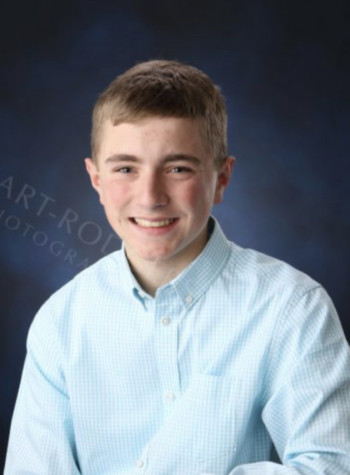Tardies and ‘NC’s return in push to boost attendance
The post-pandemic relaxation of tardy policies aimed at allowing a smooth readjustment to in-person school last year. But instead, there was a stark increase in the number of tardies and absences which went relatively unpunished due to the lack of a ‘No credit’ policy. In response to the increase in tardies and absences, the administration has announced a new policy regarding attendance to combat habitual tardiness.
The new attendance policy features two types of tardies: minor and extreme. A minor tardy allows students to arrive up to 10 minutes late and receive detention. By contrast, anything past 10 minutes late is considered an “extreme tardy,” resulting in an unexcused absence.
“The new attendance policy didn’t necessarily affect my (daily) schedule, but it definitely changed my mindset on getting to class on time. Now I’m more stressed,” says sophomore Madison Ball.
Formerly, students who accumulated seven or more unexcused absences in any given class would receive no credit for the semester for that class. Among students, no credit is more commonly known as an “NC.” As a part of the new attendance policy, the maximum number of unexcused absences has been lowered to six in the 2022 school year.
“We hold ourselves in loving accountability of (our students). We want the school to be supportive and feel relevant. There’s no job where you could be gone for 30 days and get a paycheck. We often talk about [how] this isn’t the real world, this is preparation for the real world, [so we built] in more support.” says newly appointed Assistant Superintendent Taya Kinzie.
A demonstration of the new support system is the relaxed criteria for an “unexcused absence” leading to an “NC”. As part of the new policy, a “parental excuse” for something such as a doctor’s appointment or funeral no longer counts towards an “NC” as long as proper parental documentation is provided.
Students will also be allowed five excused “mental health” days, which schools are required to provide following the passing of a new state law that went into effect in 2022.
“I think the new tardy policy is well intended but has harmful effects on students, because there are many circumstances that affect a student’s attendance and their passing of a class should be based on class performance, not attendance,” says junior Vasanth Visweswaran.
Students who acquire 10 or more tardies are placed on “social probation,”, barring them from sporting events, open campus privileges, school dances and more until the student clears their detentions.
While extreme tardies and “NC” status cannot be cleared, detentions from regular tardies roll over from one school year to the next and can be cleared in various ways, including but not limited to A.M. support, study centers and Wildkit Academy.
“We want to build in the positive to this disruption and recognizing when students are doing it right now, as opposed to a penal system,” Kinzie said. “We’re not just focused on castigation … [We are thinking] positively around how are we all holding [students] accountable. Accountability isn’t the end all be all,” Kinzie said, “because everybody cares, and [we must] show the care.”
Your donation will support the student journalists of the Evanstonian. We are planning a big trip to the Journalism Educators Association conference in Nashville in November 2025, and any support will go towards making that trip a reality. Contributions will appear as a charge from SNOSite. Donations are NOT tax-deductible.





